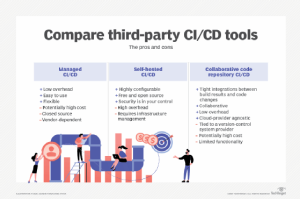
Zenhub has updated its Zenhub Enterprise project management platform for internal deployments. Zenhub Enterprise 4.0 both deploys on-premises and eliminates the need for a GitHub account.
Zenhub Enterprise 4.0 was announced October 17 and is available now. Teams can use Zenhub Enterprise with GitHub or instead use the built-in Zenhub Issues capability. Zenhub Issues functions similarly to GitHub Issues and may be useful for team members who do not use GitHub or for tracking non-development tasks, Zenhub said. Zenhub Issues can be converted to GitHub Issues, enabling users not using GitHub to create issues that may evolve into development tasks.
For users migrating from GitHub Projects to Zenhub, the capabilities of Zenhub’s Classic GitHub Projects Importer have been extended, allowing developers to import pipelines, repositories, and issues from classic GitHub project boards into a Zenhub worksplace. Also with Zenhub Enterprise 4.0, every project on the roadmap now has a dedicated flyover that describes the project and shows the contributors who created and closed the project.
Zenhub said that while the last decade has seen a relentless push for hosting software in the cloud, the narrative is starting to shift, particularly as data privacy and intellectual property ownership have become increasingly unclear with recent advances in artificial intelligence and the wide-scale adoption of LLMs (large language models) in many SaaS products. Zenhub pledges parity between its on-premises and cloud solutions.
Developers can log in to Zenhub or sign up for an account at zenhub.com. Other capabilities in Zenhub Enterprise 4.0:
- GitHub Productivity Insights is a new dashboard showing six productivity metrics based on team activities in GitHub, including issue completion percentage, average issue cycle time, issue completion ratio, pull-request throughput, average code review time, and pull-request merge ratio.
- Zenhub Organizations now are visible at the time of onboarding to users signing up with the same email domain as the Zenhub Organization creator. Users associated by domain no longer need to be invited to join a new organization.
- An “Allowed Domains” feature enables users to specify domains from which they accept requests, providing more security and speeding up user onboarding.
- Integrations have been made with developer platforms including Figma, Miro, and Loom.
Zenhub in August began previewing Zenhub AI, a cloud-based service that provides AI assistance in project management. The service now is in a beta state.
Copyright © 2023 IDG Communications, Inc.

